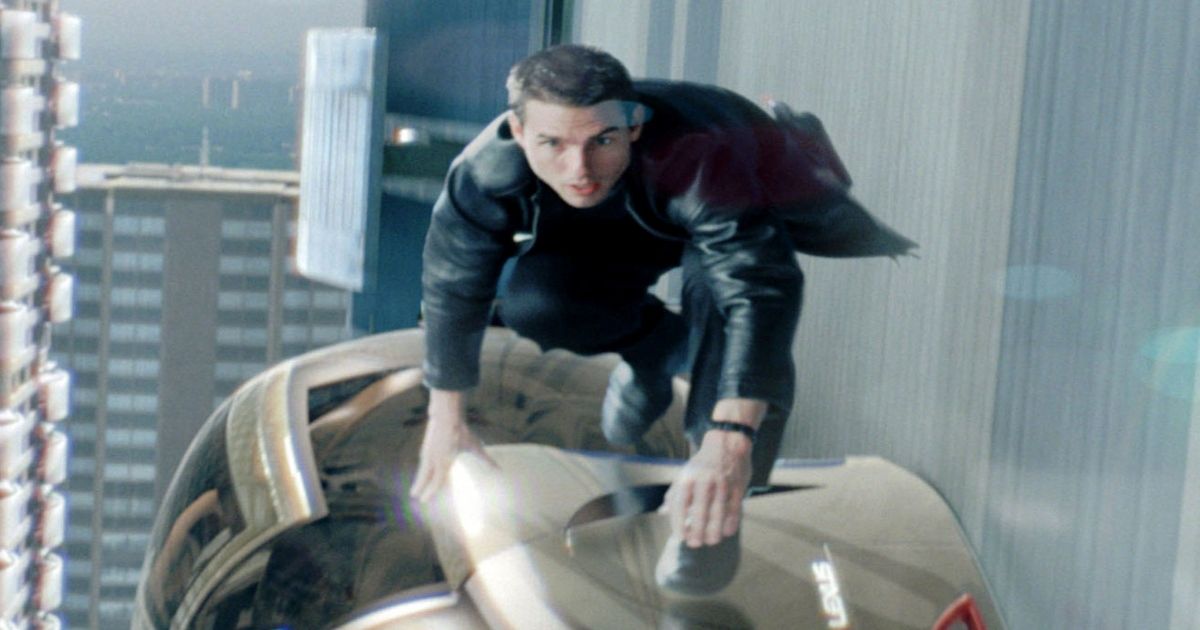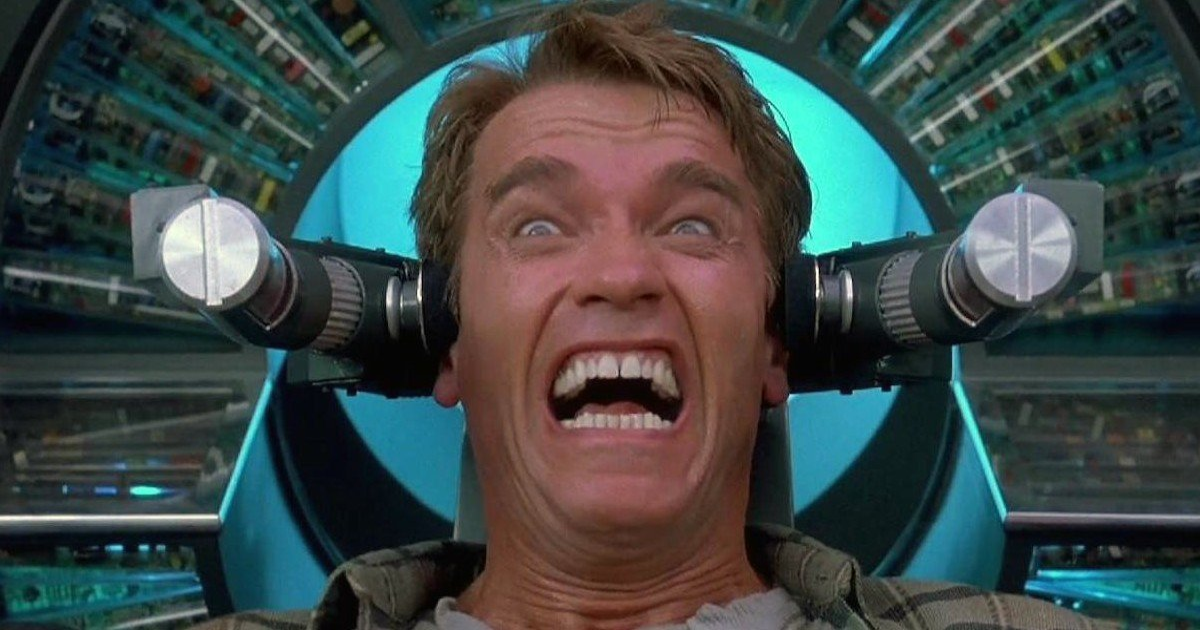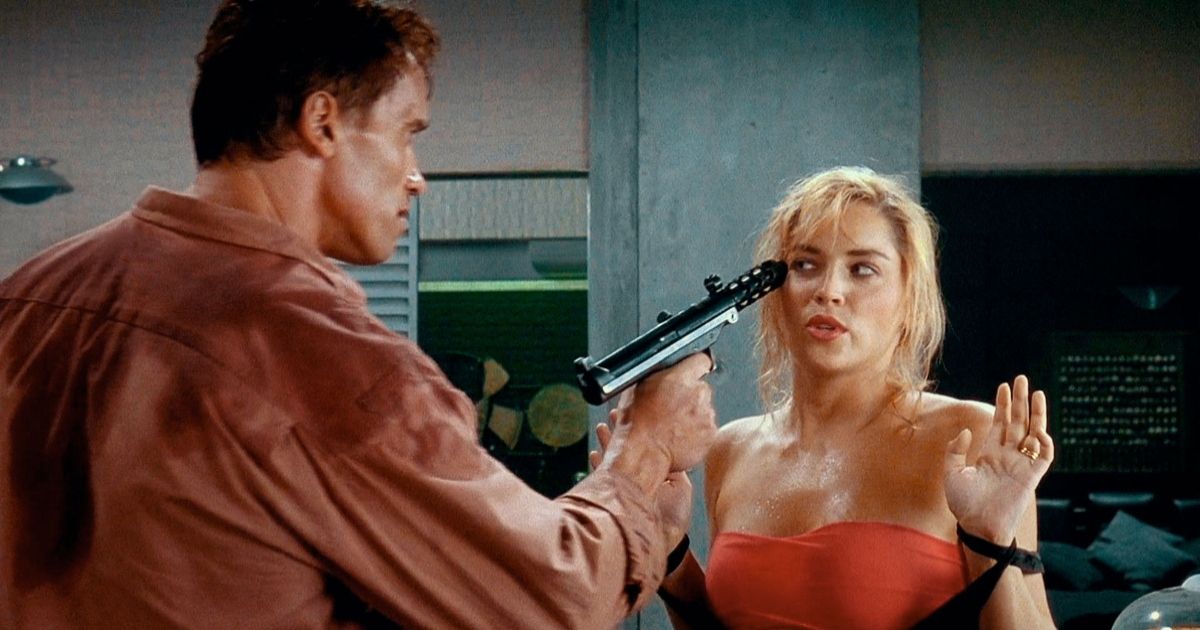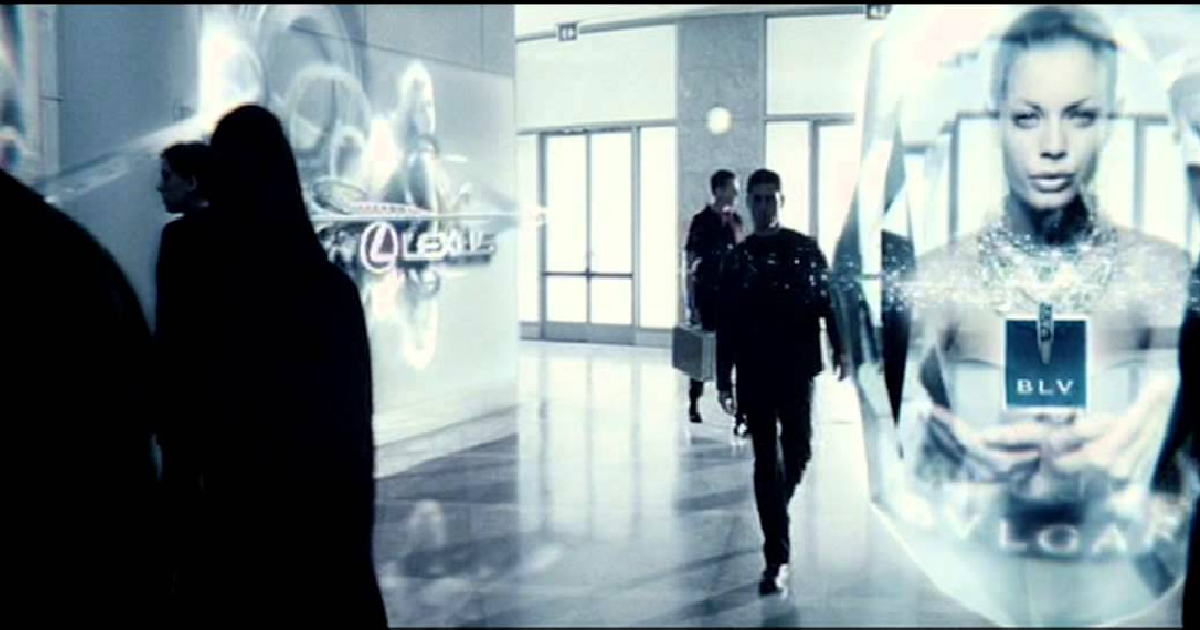It's hard to underestimate the impact that legendary sci-fi author Philip K. Dick has had on modern cinema. The illustrious writer, who produced over 100 short stories and 44 novels over his lifetime, is responsible for some of Hollywood's most revered sci-fi films, from Ridley Scott's Blade Runner to Richard Linklater's A Scanner Darkly. Although it's impossible to pick a PKD adaptation that's objectively the "greatest," Paul Verhoeven's Total Recall and Spielberg's Minority Report serve as two of the visionary's most talked-about and commercially successful films to date.
Both features are based on two of Dick's most popular short stories, "The Minority Report" and "We Can Remember It for You Wholesale." These stories arm readers with complex and enticing visions of the future that only a master like Dick could develop so thoroughly. In "The Minority Report," clairvoyant mutants called "precogs" are used to stop future crimes before they are committed; disaster strikes when the precogs foresee that the story's protagonist, John Anderton, will commit murder within a week. "We Can Remember It for You Wholesale," meanwhile, sees a future where false memories can be implanted in one's brain - but what happens when someone has gotten to your memories before you?
Both of these crucial sci-fi adaptations were massive commercial successes, with Total Recall earning over $250 million at the box office and Minority Report over $350 million. Either film was well received by critics at the time, given their respective flaws. Total Recall was regarded as a fast-paced and well-crafted genre work, while Minority Report was named a triumph that "works on our minds and out emotions." It's safe to say, though, that one film definitely wouldn't exist the way it does today without the influence of the other. Believe it or not, Minority Report even almost became Total Recall 2. While that would have been exciting to see, it all worked out for the best. Each of these genre masterworks offers us unique, engaging approaches to one of the most incisive fiction authors of all time.
Hollywood's Finest: Schwarzenegger vs. Cruise
It's difficult to imagine what the status of these films would be today were they not helmed by such trans-generational superstars. Total Recall sees Schwarzenegger in a Schwarzenegger-esque, though definitely more complex and layered role. As "Douglas Quaid," he is able to go from stoical to completely paranoid within a matter of minutes. However, this never prevents Schwarzenegger from being able to deliver the perfect one-liner at all times. Part of what makes Total Recall so great is that it both is and isn't an Arnold Schwarzenegger movie - it's high and low art all at once.
Cruise's character in Minority Report, John Anderton, is a more serious and haunted figure. His work at the PreCrime unit entirely consumes him to distract from a tragic past. Despite the fact that Minority Report is a fast-moving action film, we actually get to see Cruise flourish as a serious actor here, adding a newfound conviction and gravity to the typical haunted-cop trope. However, Cruise still shines as a one-of-a-kind action star; he did all of his own stunts for the movie. "You have to let me determine what stunts I will let you do!" Spielberg jokingly said in an interview with Hollywood.com.
Both of these films see Cruise and Schwarzenegger in their prime, in roles that reflect their reputation as much as challenge them. The films represent pivotal stages in either of their careers, continuing to alter how we see them today.
The Modern and The Camp
Saving Private Ryan. Lincoln. Schindler's List. Showgirls. One of these things is not like the other. Although either have had their fair share - or twenty times that - of commercial successes, Spielberg and Verhoeven are, stylistically, quite different directors.
Minority Report is a sleek, ultra-modern and serious affair, while Total Recall exudes a campy tongue-in-cheekness that stretches to the planes of Mars and beyond. Under the expertise of cinematographer Janusz Kaminski, whom he instructed to make the "ugliest, dirtiest movie" he'd ever worked on, Spielberg's film is the bleakest thing you'll ever see. Its de-saturated brightness is blinding, immersing audiences completely into a sterile, hostile reality. Meanwhile, Total Recall is bursting at the seams with color - not only in the visual sense, but in every other sense of the word. Its energetic orchestral score by Jerry Goldsmith perfectly matches all the flashy, garish aesthetics - like the red deserts of Mars that were actually filmed in Mexico.
All of this is not to say that Minority Report is the better or more "sophisticated" movie, because it may look or feel more slick. In fact, in recent years it may be just the opposite. Camp as both a style and genre has been making a huge comeback, with not only old camp favorites seeing resurgence everywhere, but modern films attempting to purposefully emulate a "campy" style. Total Recall is camp at its finest. Minority Report is Spielberg at his finest - if that's a real thing that exists.
Philip K. Dick's Abstract Future(s)
Those unfamiliar with or holding a grudge against sci-fi tend to think it has only one future to show us. A philosophically and aesthetically uniform one, where humans no longer need to think and cars can drive on the sides of buildings. Alright, maybe in Minority Report's case that second one is true. But either of these films show us connected yet very particular versions of where our society might be in 2054 and 2084, respectively.
Although, on the surface-level, both films appear to be about the adverse effects of technological advances, the currents run much deeper than that. Many consider Total Recall to be an inherently political film, with its themes surrounding colonization and authoritarian rule over another planet. Verhoeven himself survived the Nazi occupation, and the influence of the idea of fascism on the film is undeniable.
Meanwhile, Minority Report is a more classically philosophical film, forcing us to consider the extent and limitations of free will. With its noir-like labyrinth of twists and turns, Spielberg seems to have many different answers to that question throughout the film. Minority Report will inevitably challenge and compel you to see these ideas in different ways over its runtime. Of course, Total Recall does that too, with its own ideas - only it also features Schwarzenegger saying "Consider that a divorce" after fatally shooting his wife. Both are equally timeless PKD adaptations and sci-fi features in general, always able to find spectacle in the substance and substance in the spectacle.



